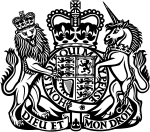
Back التعليم في إنجلترا Arabic Koulutus Englannissa Finnish Système éducatif en Angleterre French Istruzione in Inghilterra Italian ಇಂಗ್ಲೆಂಡಿನ ಶಿಕ್ಷಣ ವ್ಯವಸ್ಥೆ Kannada 잉글랜드의 교육 Korean Английн боловсролын тогтолцоо Mongolian Edukacja w Anglii Polish Educația în Anglia Romanian İngiltere'de eğitim Turkish
 | |
| Department for Education | |
|---|---|
| Secretary of State for Education Minister of State for Skills, Apprenticeships and Higher Education[1] | Gillian Keegan Luke Hall |
| National education budget (2008–09) | |
| Budget | £62.2 billion[2] |
| General details | |
| Primary languages | English |
| System type | National |
| Compulsory education | 1880 |
| Literacy (2012[3]) | |
| Total | 99% |
| Enrollment | |
| Total | 11.7 million |
| Primary | 4.50 million (in state schools)[4] (2016) |
| Secondary | 2.75 million (up to Year 11 in state schools)[4] (2016) |
| Post secondary | Higher Education: 1,844,095[5] (2014/15) Further Education: 2,613,700[6] (2014/15) Total: 4,457,795 (2014/15) |
| Attainment | |
| Secondary diploma | Level 2 and above: 87.4% Level 3 and above: 60.3% (of 19 year olds in 2015)[7] Level 2 and above: 81.0% Level 3 and above: 62.6% (of adults 19–64 in 2014)[6] |
| Post-secondary diploma | Level 4 and above: 41.0% (of adults 19–64 in 2014)[6] |
Education in England is overseen by the Department for Education. Local government authorities are responsible for implementing policy for public education and state-funded schools at a local level. State-funded schools may be selective grammar schools or non-selective comprehensive schools. All state schools are subject to assessment and inspection by the government department Ofsted (the Office for Standards in Education, Children's Services and Skills). England also has private schools (some of which are known as public schools) and home education; legally, parents may choose to educate their children by any suitable means.
The state-funded compulsory school system is divided into Key Stages, based upon the student's age by August 31. The Early Years Foundation Stage is for ages 3–4. Primary education is divided into Key Stage 1 for ages 5–6 and Key Stage 2 for ages 7–10. Secondary education is divided into Key Stage 3 for ages 11–13 and Key Stage 4 for ages 14–15.[8] At the end of Year 11 (at age 15 or 16, depending on their birthday) students typically take General Certificate of Secondary Education (GCSE) exams or other Level 1 or Level 2 qualifications.
While education is compulsory until 18, schooling is compulsory to 16: thus post-16 education can take a number of forms, and may be academic or vocational. This can involve continued schooling, known as sixth form, leading to A-levels or alternative Level 3 qualifications. It can also include work-based apprenticeships, traineeships and volunteering.[9][10] The Regulated Qualifications Framework (RQF) covers national school examinations and vocational education qualifications.[11]
Higher education often begins with a three-year bachelor's degree. Postgraduate degrees include master's degrees, either taught or by research, and doctoral level research degrees that usually take at least three years. The Framework for Higher Education Qualifications (FHEQ), which is tied to the RQF, covers degrees and other qualifications from degree-awarding bodies.[12]
- ^ From February 2023, Higher Education comes under the Department for Education, Science under the Department for Science, Innovation and Technology
- ^ Table 1 Total Departmental spending, Departmental report 2008 Archived 31 January 2009 at the Wayback Machine, Department for Innovation, Universities and Skills. £14.3 billion spending on HE, £4.9 billion on FE.
- ^ "U.K. Literacy Rate 1990-2020". www.macrotrends.net.
- ^ a b "National pupil projections: July 2016". Department for Education. July 2016. Retrieved 16 July 2016.
- ^ "Higher Education Student Enrolments and Qualifications Obtained at Higher Education Providers in the United Kingdom 2014/15". Higher Education Statistics Agency. Archived from the original on 16 August 2016. Retrieved 16 July 2016.
- ^ a b c "Further education and skills: statistical first release (SFR)". Department for Business, Innovation and Skills. 23 June 2016.
- ^ "Level 2 and 3 attainment by young people aged 19 in 2015". Department for Education. 7 April 2016. Retrieved 16 July 2016.
- ^ "The national curriculum". Gov.uk. Retrieved 16 July 2016.
- ^ "Options at 16 and beyond". Kent County Council. Retrieved 16 July 2016.
- ^ "School leaving age". Gov.uk. Retrieved 16 July 2016.
- ^ "What qualification levels mean". Gov.uk. Retrieved 20 October 2023.
- ^ "Compare different qualifications". Gov.uk. Retrieved 16 July 2016.
© MMXXIII Rich X Search. We shall prevail. All rights reserved. Rich X Search